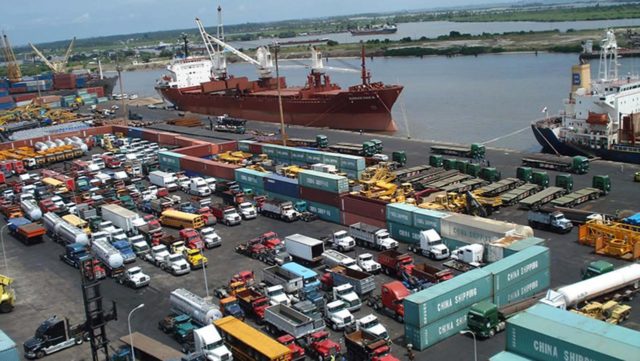• Say manual inspection accounts for 81.7 per cent of port charges
Two months after the Nigeria Customs Service (NSC) took delivery of the Nuctech mobile scanners, the facilities are yet to be installed.
Terminal operators and other stakeholders have blamed the Service for the delayed deployment of the scanners at the nation’s seaports for use.
They said the NCS’ continuous utilisation of 100 per cent manual cargo examination and clearance constitute a lot of bottlenecks in the system and are responsible for the huge costs of port services.
They gave the submission at a town hall meeting organised by the League of Maritime Editors in Lagos.
Recall that NSC had in September 2021 taken delivery of Nuctech Mobile Scanners at Tin-can Island Command and Area ll Command, Onne Port, Rivers State.
The Chairman of the Seaport Terminal Operators Association of Nigeria (STOAN), Dr. Vicky Haastrup, said Customs inefficiency was responsible for more than 80 per cent of the costs incurred by importers and agents at the seaports.
Haastrup said a manual examination of cargoes has become a sore point in Nigeria’s Customs administration.
She added that the manual process was no longer in line with global trends as automation has become the normal practice and employed by West and Central African countries.
This, she said, constitutes a drawback to port efficiency and contributes to the low turnover time of cargo clearance.
In her paper titled, ‘Impact of Automation in Cargo Handling Operation’, she said it was also the main reason importers and agents troop to port daily, a situation that breeds corruption.
She cited a study conducted by Akintola Williams Deloitte in 2017, which revealed that Customs processes are responsible for not less than 81.7 per cent of the charges incurred by consignees while shipping companies constitute 13.8 per cent of the port cost. Terminal operators, she said, contribute 1.4 per cent, transporters contribute 1.4 per cent and clearing agents constitute 1.7 per cent.
Haastrup said full automation of the clearing process and the deployment of a sufficient number of scanners at the port would cut down the multiple checks by customs and other security agencies.
She urged the Federal Government to engage the private sector to acquire more high-end scanners to put a definitive end to manual examination. According to her, it is not enough to merely acquire scanners.
She also noted that scanners, when procured should not be left for government officials as they could be destroyed in no time.
“The effective use and maintenance of scanners are also critical. The services of risk assessment/management companies should be engaged and retained to effectively utilise and maintain the scanners.
“If we are truly desirous of creating efficiency at our ports, the manual examination should be reduced to less than 10 per cent in line with international best practices,” she said.
Chairman of Nigerian Ports Consultative Council (NPCC), Kunle Folarin, said Nigeria has been left behind in the automation of ports, stressing the need for all port operations to be automated to enhance speedy goods clearance.
Meanwhile, the Comptroller General of NCS, Hammed Ali, in his presentation, said efforts were being made to install the scanners.
Ali, who was represented by an Assistant Controller of Customs, A. Richards, said the scanners were being mounted.
In this article:

